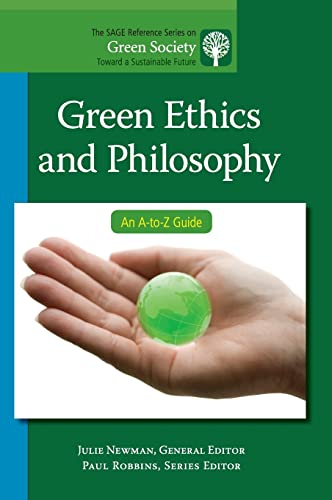Green Ethics and Philosophy
Julie Newman, Ph.D., has worked in the field of sustainable development and campus sustainability since 1993. In 2004, Julie was recruited to be the founding Director of the Office of Sustainability for Yale University. At Yale, Julie also holds a lecturer appointment with the Yale School of Forestry and Environmental Studies where she teaches an undergraduate course entitled – Sustainability: From theory to practice in institutions. In 1997, Julie assisted with the establishment of the longest-standing sustainability office in the country at the University of New Hampshire, Office of Sustainability Programs (OSP). Prior to her work with the OSP she worked for University Leaders for a Sustainable Future (ULSF) overseeing the development of the Environmental Literacy Institute. In addition to her work on campus, Julie has taken a leadership role in bringing together peer institutions both regionally and internationally. In 2004 Julie co-founded the Northeast Campus Sustainability Consortium established to advance education and action for sustainable development on university campuses in the northeast and maritime region. She also co-coordinates a sustainability working group of the International Alliance of Research Universities [IARU] as well as a Sustainability Working Group for the Council of Ivy Presidents. Julie has worked internationally on issues of sustainable development as a Peace Corps volunteer in Guatemala and subsequently collaborating and consulting with universities in Europe, China, Japan and Australia. Her research has focused on the role of decision-making processes and organizational behavior in institutionalizing sustainability into higher education. Julie lectures and consults for universities both nationally and internationally, participates on a variety of boards and advisory committees and has contributed to a series of edited books and peer reviewed journals. Julie holds a BS in Natural Resource Policy and Management from the University of Michigan; an MS in Environmental Policy and Biology from Tufts University; and a Ph.D. in Natural Resources and Environmental Studies from the University of New Hampshire. ... Read more Read less
This eighth volume in the SAGE Series on Green Society covers the moral relationship between humans and their natural environment, specifically targeting the contemporary green movement. Since the 1960s, green ethics and philosophies have helped give birth to the civil rights, feminist, and gay rights movements, as well as contemporary environmentalism. With a primary focus on green environmental ethics, this reference work, available in both print and electronic formats, presents approximately 150 signed entries arranged A-to-Z, traversing a wide range of curricular disciplines, including philosophy, psychology, business, economics, religion, and political science. A rich blend of topics, from the Hannover Principle to green eco-feminism, responsible eco-tourism, corporate values and sustainability, and more, are explained by university professors and scholars, all contributing to an outstanding reference mainly for academic and public libraries. ... Read more Read less











